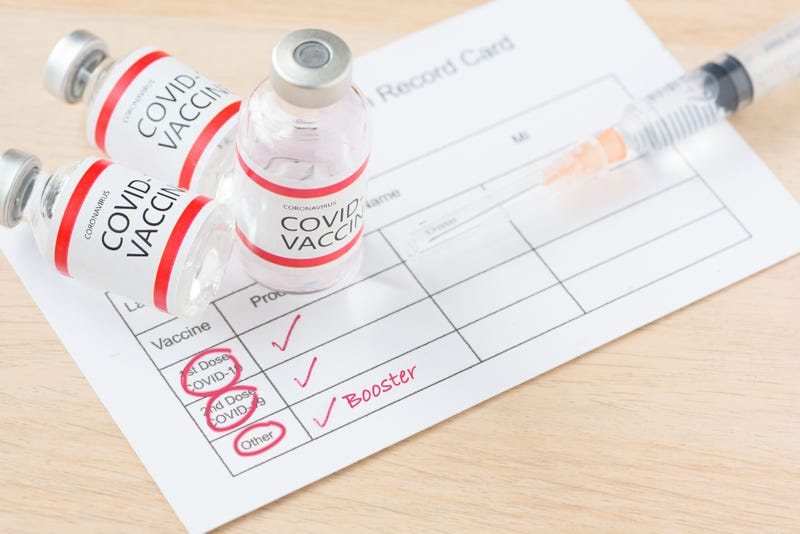
SAN FRANCISCO (KCBS RADIO) – The United States has extended the COVID-19 health emergency declaration again, this time through January of next year despite President Joe Biden's recent comments that the pandemic is over.
For more, stream KCBS Radio now.
There are many reasons for wanting the pandemic to be over – the economy needs to get back on track, and people are mentally over COVID-19, to get back to normal. But that doesn’t mean that the pandemic is over from a scientific standpoint.
"Even though we’re in a lull now, and of course, no one wants to be a Debbie Downer, we will see an increase in cases," said Dr. Peter Chin-Hong, a professor of medicine and Associate Dean for Regional Campuses at UCSF on KCBS Radio's "Ask an Expert" on Friday with Melissa Culross and Eric Thomas.
There definitely won’t be the same onslaught in hospitals or a rise in deaths as there was before, he said.
"But nevertheless, it is something to be aware of," said Chin-Hong. "Just like you put your protection on when it's raining outside, when the weather is good, you don't. And when it is, you do it on a temporary basis."
There are benefits of keeping the health emergency declaration intact, including the ability to deploy public health workers rapidly if needed.
Another benefit, and perhaps even more important, is the impact on people's healthcare coverage.
"We've had a record number of people covered because of the public health emergency," he said. "Up to 15 million Americans would lose insurance if that was lifted."
A third benefit of the declaration is that there is flexibility in who administers vaccines. During the pandemic, pharmacists and others were able to administer essential vaccines, not just nurses and physicians.
"All hands on deck," said Chin-Hong. "It's been very successful."
All these elements add to better coverage for the total population, and more equity overall.
As the country moves forward in the pandemic, the current lull in cases is a relief, but it doesn't guarantee what might come next.
"I'm hoping it just falls into the cadence of once a year, in the winter, we kind of know what will happen, like influenza," he said.
But that isn't happening yet. "I think we just need to be aware of it, be flexible but not necessarily scared," he said.
DOWNLOAD the Audacy App
SIGN UP and follow KCBS Radio
Facebook | Twitter | Instagram

